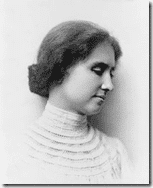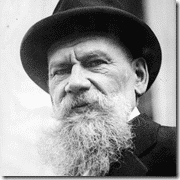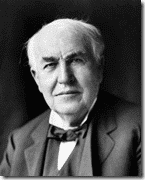If the teacher tells you that your child is not gifted, it’s more likely that it’s the teacher who is not gifted.
The most common response to a piece I wrote last month entitled 12 Things Teachers Think But Can’t Always Say to Parents was a suggested addition to the list. It was phrased in many ways, oftentimes sarcastically, and it generally went something like this:
Your child is not as gifted as you think he or she is.
There was a reason I left this particular item off my list:
It’s stupid. It’s shortsighted and narrow minded. It’s unproductive. It’s adversarial. It’s not true.
This is not to say that I haven’t heard this sentiment expressed many times in my 17 years as a teacher. But whenever I hear a teacher express this idea, I push back immediately, and I push back hard, for three reasons.
1. Parents are supposed to think that their child is gifted.
It’s only natural for them to think more highly of their child than the rest of the world does. Their child is the most important thing in their life. They will invest more time, money, and energy into their child than anyone or anything before or after. It makes sense for them to believe that the person who they love the most in the world is gifted in some way.
And we all deserve to have someone in our lives who believes in us above all others. It should be our parents. They should be our champions. To think that parents should feel differently is short sighted and stupid.
2. Wouldn’t it be a better world if every teacher thought like parents and assumed that every student in their class was gifted in some way?
I’ve taught about 350 students in my 17 years as a teacher, and I have yet to meet a kid who I didn’t believe was gifted in one way or another.
In fact, some of my most accomplished students were the ones for whom learning came the hardest. Their gift was not intellect but effort – a willingness to do whatever it took to succeed.
Give me a student gifted in effort over a student gifted in intellect any day.
I assume that every one of my students is gifted, and this assumption has served me well. When a teacher sets remarkably high expectations and demands more from his students than ever before, students perform better. The research on this is irrefutable.
Yet history is littered with presumptuous, ignorant, and arrogant educators who assumed that their students wouldn’t amount to much and were later proven wrong.
Albert Einstein. Helen Keller. Robert Strenberg. Thomas Edison. Louis Pasteur. Enrico Caruso. Ludwig Beethoven. Leo Tolstoy. Louisa May Alcott.
Many more. Too numerous to count. Myself included.
Each of these men and women were told by teachers that they were hopeless, half-witted, and doomed to a lives of mediocrity.
It turns out that it was the teachers who were hopeless, half-witted, and mediocre.
As a teacher, why not err on the side of gifted? Why not assume the best? Expect the best. Demand the best. Give students the chance to shine by assuming that they can and will shine.
3. Why promote an adversarial relationship with parents?
If a parent thinks that their child is gifted, and you – for whatever reason – disagree, why not find some middle ground?
Yes, it’s entirely possible that your child is gifted, and if he begins working to his fullest potential, we may start to see more evidence of that. Let’s find a way to make that happen.
There’s no reason to quash a parent’s hopes and dreams for their child. The teacher-parent relationship is one of the best tools available in my teaching arsenal. When it is strong and trusting, learning increases. Behavior improves. But that relationship only exists because I understand how parents feel about their children, and I embrace those feelings.
Yes, your child is gifted. I’m not sure about the scope of that giftedness, but let’s get your child working as hard as possible and find out together.
That strikes me as a more productive and respectful position than the smarmy “You’re child isn’t as gifted as you think” response that so many teachers who responded to my initial piece seemed to default to.
Every child in my classroom is someone else’s whole world. I try to remember this at all times. When I do, it’s never too hard to see every child in my classroom as gifted in some way.






